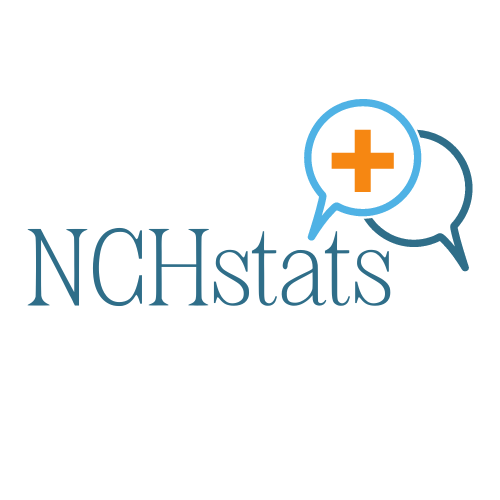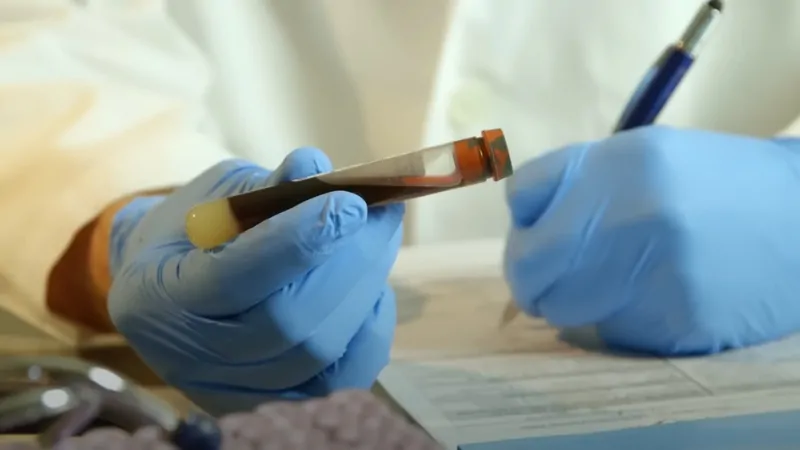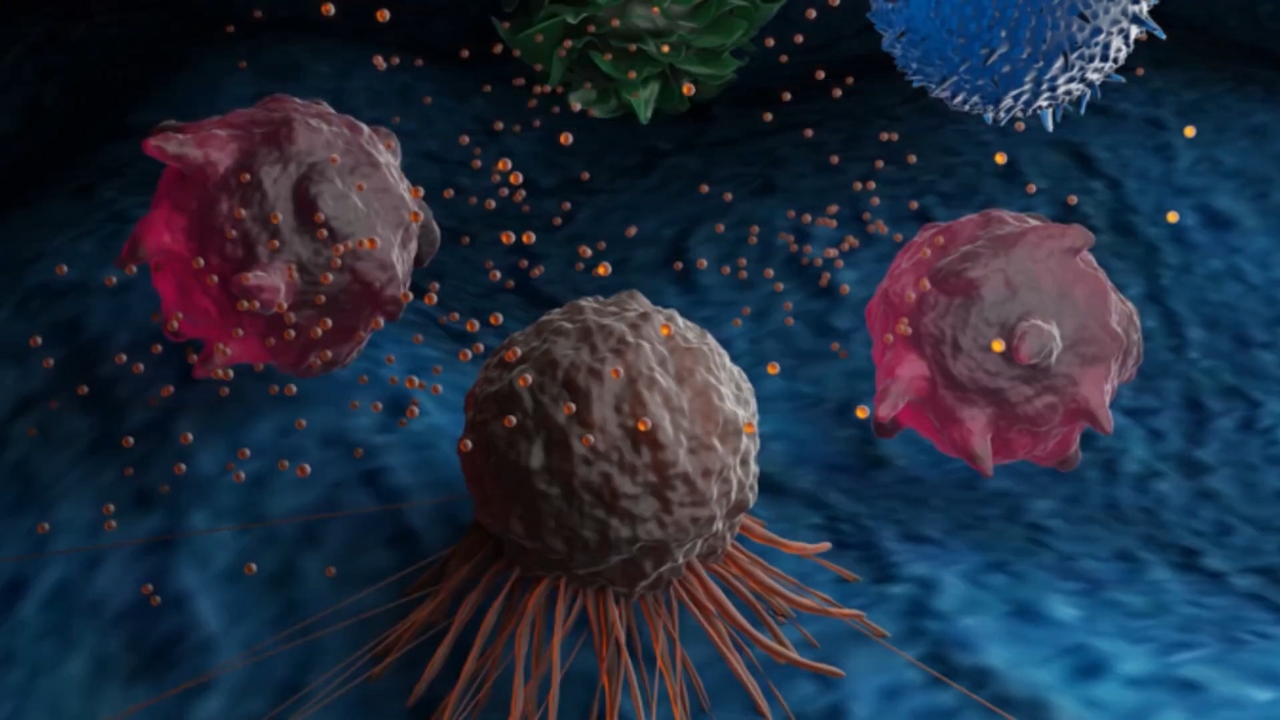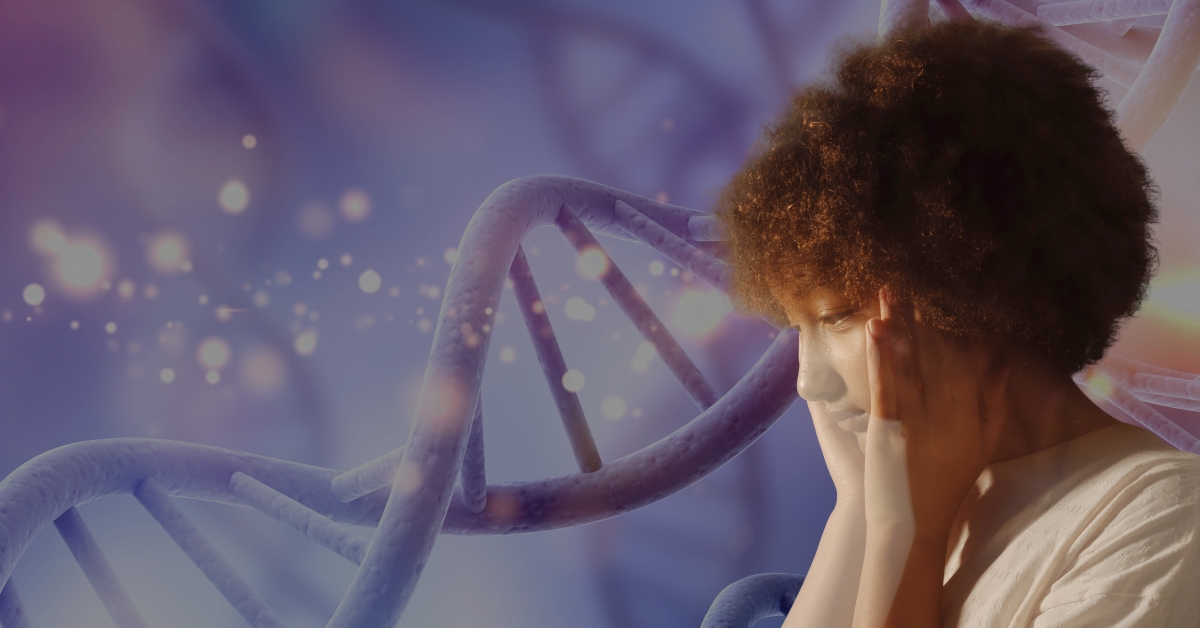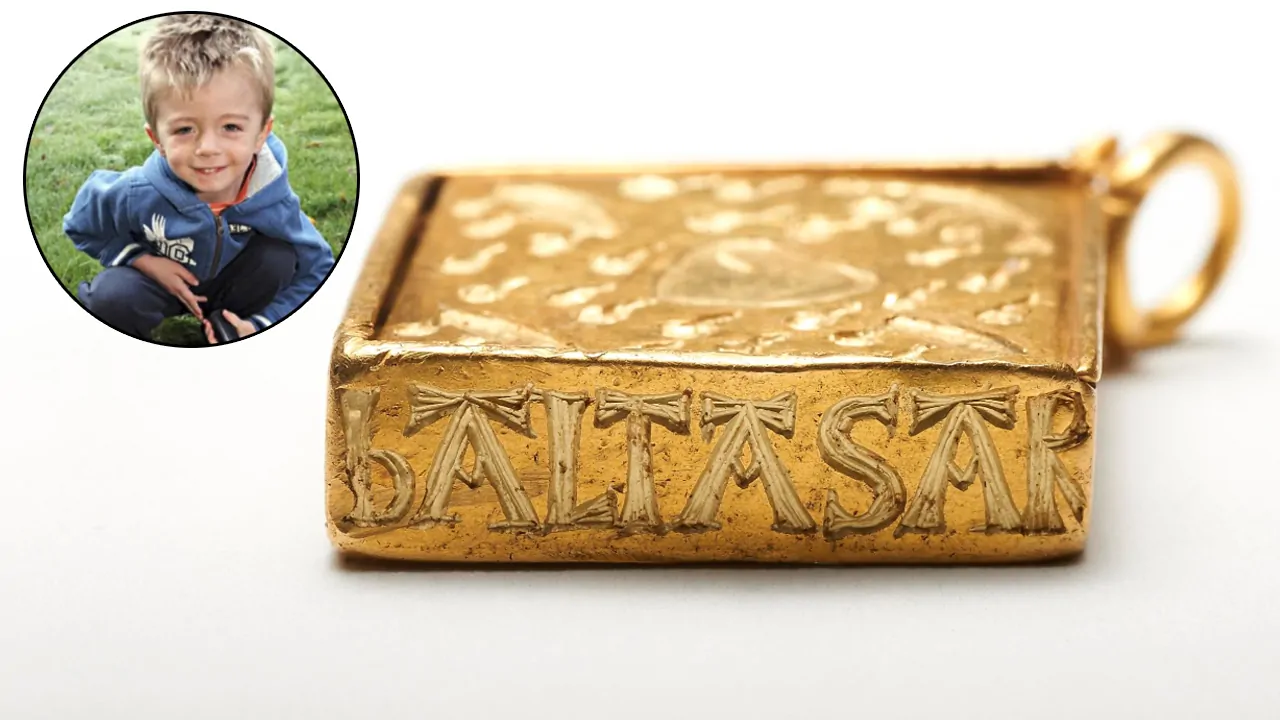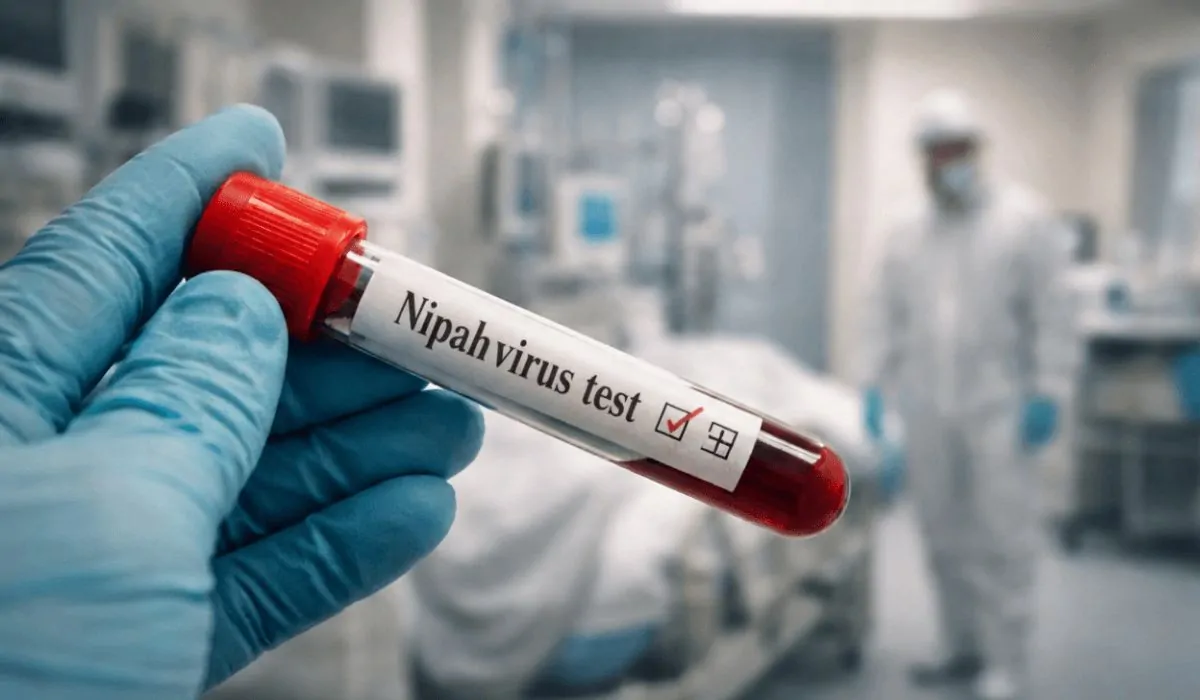Golden blood refers to individuals whose red blood cells lack all Rh antigens. Unlike the common Rh-positive or Rh-negative types, people with Rh null blood do not have any of the 49 currently known Rh antigens on their red blood cell surface.
This complete absence of Rh antigens makes Rh null the rarest blood group worldwide—fewer than 50 people have ever been identified as having this blood type.
First discovered in an Australian Aboriginal woman in 1961, Rh null blood can be found in individuals from every continent and ethnicity. Although reports of golden blood are slightly higher in parts of South America, there is no strong ethnic link; cases have occurred globally.
Table of Contents
ToggleOdds and Genetics of Golden Blood
The likelihood of being born with the Rh null blood type is astonishingly low—just 1 in 6 million. Certain genetic factors can increase the risk, such as:
The RHAG gene is especially significant, as it is responsible for the protein that helps direct Rh antigens to the red cell surface.
Mutations in this gene can not only result in the golden blood type but are also linked with rare blood cell disorders like hereditary stomatocytosis—a condition that can cause chronic, mild hemolytic anemia.
ABO and Rh Systems
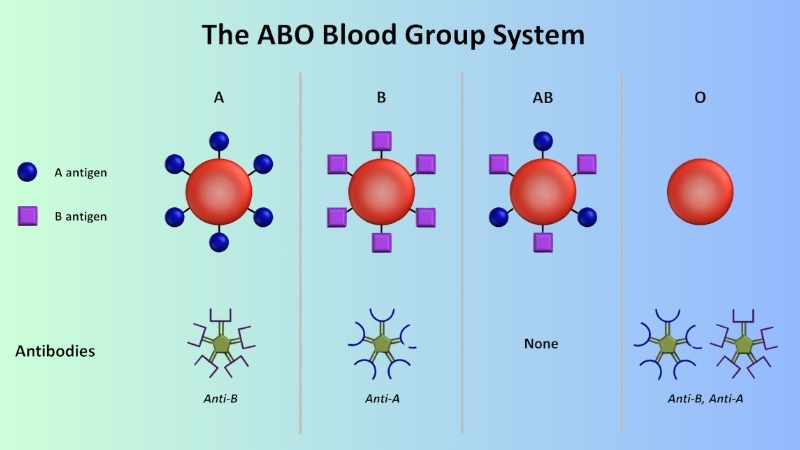
Human blood types are determined by specific antigens—sugars and proteins—on the surface of red blood cells (RBCs). The most well-known classification system is the ABO system, which groups blood as A, B, AB, or O, based on the combination of antigens present.
A second crucial distinction is the Rhesus (Rh) factor:
- Rh-positive: Has the Rh-D antigen on red cells.
- Rh-negative: Lacks only the Rh-D antigen.
- Rh null: Lacks all Rh antigens—not just Rh-D, but every protein in the Rh group.
Blood Group Antigen and Rh Factor
Blood Type
Blood Group Antigen
Rh Factor
A+
A present, B absent
Present
A−
A present, B absent
Absent
B+
B present, A absent
Present
B−
B present, A absent
Absent
AB+
Both A and B present
Present
AB−
Both A and B present
Absent
O+
Neither A nor B present
Present
O−
Neither A nor B present
Absent
Blood Donation and Compatibility: Why Golden Blood Is Priceless
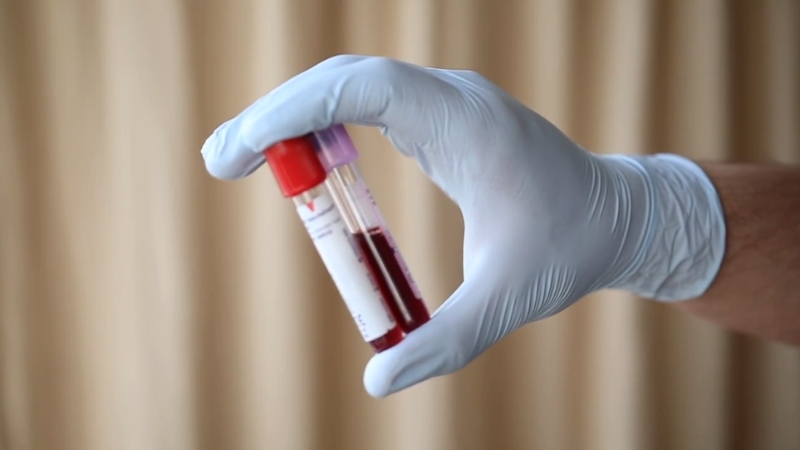
People with the golden blood type face a paradox. On one hand, their blood is universally compatible within the Rh system and can be safely transfused to almost any patient with rare Rh backgrounds, making it invaluable in emergencies or for people with complex transfusion needs.
On the other hand, if someone with Rh null blood ever requires a transfusion, their only safe option is blood from another Rh null donor. With fewer than 10 active donors globally, accessing compatible blood is a serious challenge.
Blood Group Transfusion Compatibility
Blood Group
Can Donate To
Can Receive From
O−
All blood group types
O−
A+
A+, AB+
A+, A−, O+, O−
AB+
AB+
All blood group types
B−
B+, B−, AB+, AB−
B−, O−
…
…
…
Rh null
Any Rh phenotype
Only Rh null
Scientists Discover “Gwada Negative”—A New, Ultra-Rare Blood Type in Guadeloupe (June 2024, Paris)
In June 2024, scientists announced the discovery of a new blood group named “Gwada negative”—the world’s rarest, found so far in only one woman from Guadeloupe, a French overseas territory in the Caribbean. The finding was presented at the International Society of Blood Transfusion Congress in Milan, according to Live Science.
The 68-year-old woman’s blood, first tested in Paris in 2011, could not be matched to any known blood type. Only with advanced gene sequencing in 2019 did researchers identify a unique mutation in the PIGZ gene that changed how proteins anchor on her red blood cells.
This makes her the only person currently compatible with herself for transfusions, according to the research team at Établissement français du sang (EFS).
Gwada negative is now recognized as the 48th official blood group system by the ISBT. Scientists hope to search for others with this rare blood group, starting in Guadeloupe, to improve care for patients with unusual blood needs worldwide.
Health Risks and Challenges for People With Rh-Null Blood
Living with golden blood is not without its health concerns. The absence of Rh antigens impacts red cell structure and function. Key complications include:
- Hemolytic anemia: Increased fragility and premature destruction of red blood cells lead to mild to moderate anemia from birth, paleness, fatigue, and sometimes jaundice.
- Transfusion reactions: If an Rh null individual receives blood with any Rh antigen, a severe and potentially fatal immune reaction can occur.
- Pregnancy risks: Rh incompatibility can lead to hemolytic disease of the newborn or miscarriage, particularly if an Rh-null mother carries an Rh-positive baby.
- Hemolytic crisis: Infections or illness can trigger a massive breakdown of RBCs, risking kidney failure and other serious complications.
Because of these issues, people with golden blood require specialized medical protocols and emergency planning.
How Common Are Other Rare Blood Types?
While the Rh null (golden blood type) is the rarest blood group ever identified, medicine recognizes several other blood phenotypes as extremely rare, each with its own clinical significance and transfusion challenges.
Understanding these rare blood types is crucial for doctors, blood banks, and individuals who may be affected by complex transfusion needs or genetic inheritance.
The Three Rarest Blood Types in the World
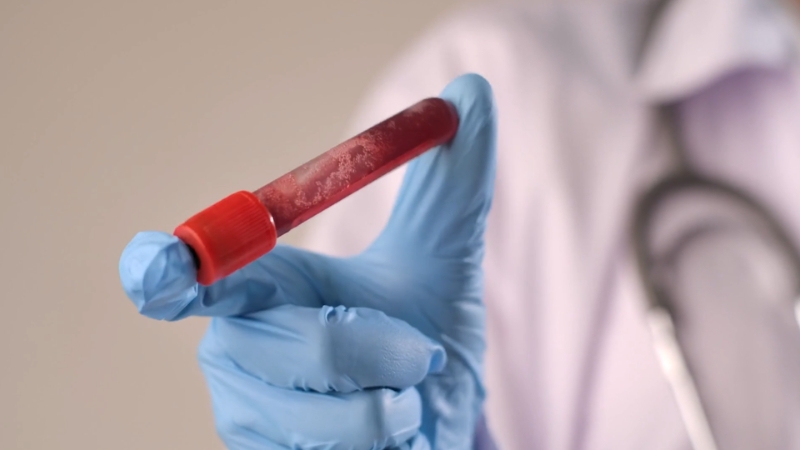
1. Rh Null (Golden Blood Type)
- How rare? Fewer than 50 cases have ever been reported globally.
- Why is it unique? Individuals with Rh null blood have none of the 49 known Rh antigens on their red blood cells. This makes their blood uniquely compatible as a universal donor within the Rh system, meaning it can be safely given to people with rare Rh backgrounds.
- Transfusion challenges: If someone with Rh null blood needs a transfusion, they can only receive blood from another Rh null donor. With only a handful of active donors worldwide, this makes every Rh null donation is critically important.
- Genetic background: Most cases of Rh null are due to mutations in the RHAG, RHD, or RHCE genes, and it sometimes runs in families where close relative marriages are more common.
2. Bombay Blood Group (HH Phenotype)
- How rare? This blood group, first discovered in Bombay (Mumbai), India, is seen in about 4 out of every million people worldwide. In the city of Mumbai, the rate is much higher, but globally, only a few hundred individuals are known to have this phenotype.
- Why is it unique? The Bombay phenotype (hh) lacks the H antigen, which is present in nearly all other blood types and is essential for A and B antigen expression in the ABO system. Even O-type blood contains the H antigen, so a Bombay blood group individual cannot receive regular O blood.
- Transfusion challenges: They can only receive blood from another person with the Bombay blood group, making family and community registries vital in regions where this group is more common.
- Genetic roots: The Bombay blood group is inherited in an autosomal recessive manner and is more likely in populations where there is a higher rate of consanguineous marriages.
3. AB Negative (AB−)
- How rare? AB negative is the rarest of the “main eight” blood types in the ABO and RhD systems. Less than 1% of the global population has AB-negative blood; in the U.S., it is found in roughly 1 in 167 people.
- Universal plasma donor: AB− individuals are especially valuable as plasma donors—any blood group can accept their plasma, since it contains neither anti-A nor anti-B antibodies.
- Donation challenges: AB− individuals can receive blood from all Rh-negative types (A−, B−, AB−, O−), but can only donate red blood cells to AB individuals (regardless of Rh type).
Is O Negative Blood Rare or Just Valuable?
@kwadcast Universal blood type! 🩸#onegativeblood #donatebloodsavelives #donateblood #doctorsoftiktok #doktortiktok #medicalfacts #universalblooddonor ♬ Epic Music(863502) – Draganov89
O negative blood is often described as the “universal donor” blood type because it lacks both A and B antigens and the Rh D antigen. This means it can be given to almost anyone in an emergency, especially when the patient’s blood type is unknown (such as in trauma, accident, or mass casualty settings).
- Prevalence: NHS notes that about 2.5% of the global population is O negative. While this makes it rare compared to common blood types like O positive (which makes up about 37% of the U.S. population), O negative is still significantly more common than Rh null or Bombay blood.
- High demand: Because O negative is universally accepted, it is the first to be used up in hospitals and blood banks, leading to frequent shortages.
- Limitations: People with O-negative blood can only receive blood from other O-negative donors, which means there’s always a need for more O-negative donors.
Why Are Rare Blood Types So Important?
For people with rare blood types like Rh null, Bombay, or AB−, a serious injury, surgery, or even pregnancy can become life-threatening if compatible blood is not available. This is why:
- Rare blood donor registries are established in many countries to quickly identify and reach donors during emergencies.
- International cooperation sometimes occurs when transporting rare blood types across borders, as was famously done for Rh null blood in high-stakes cases.
- Genetic counseling may be recommended in communities with a higher prevalence of rare phenotypes.
Blood Types and COVID-19: What Does the Science Say?
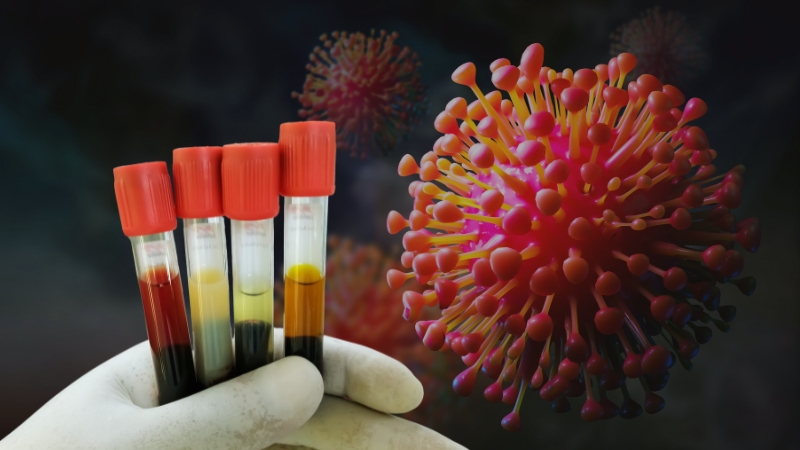
Since the start of the COVID-19 pandemic, scientists have explored whether certain blood types may influence susceptibility to the coronavirus or the severity of illness.
Emerging research suggests:
Blood type O may be linked with a slightly lower risk of COVID-19 infection, according to JAMA. Several large studies from Europe and China observed fewer cases among people with type O blood, though the difference is not dramatic.
Blood types A and AB may be associated with a higher risk of severe illness, hospitalization, or complications.
Potential mechanism: One hypothesis is that anti-A antibodies (present in type O and B blood) might help block the virus from attaching to human cells, but this theory is still under investigation.
Caveats and current advice:
- The impact of blood type on COVID-19 is modest compared to more significant risk factors like age, chronic illness, and vaccination status.
- Blood type should not affect your precautions; everyone should follow recommended COVID-19 safety guidelines, including vaccination, masks, and hygiene.
- Further research is underway to clarify these connections and understand how they might affect treatment in the future.
Final Thoughts
The rarest blood type in the world is RH-null blood also known as “Golden Blood.” It has only been identified in 43 people in the last 50 years.#MythAndFact pic.twitter.com/th2okFtl1l
— THE G•O•A•T (@OfficialUdiBoy) December 20, 2020
In summary, rare blood types like Rh null, Bombay, and AB negative are not just fascinating genetic quirks—they have real implications for emergency medicine, blood transfusion safety, and even scientific research. While O negative is crucial for emergency use, it is not as rare as the true “golden blood” types.
If you or a loved one has a rare blood group, it’s vital to register with rare blood donor networks and inform your healthcare providers. For everyone else, regular blood donation—regardless of blood type—remains one of the most valuable ways to save lives in your community.
Related Posts:
- What Is The Most Common Blood Type In The United States?
- How the Golden Hour Can Save Lives and What Delays It
- A Tiny Gut Molecule Might Cut Type 2 Diabetes Risk,…
- First Case of Type 1 Diabetes Reversal Achieved with…
- Health Insurance Coverage - National Health…
- Caffeine in Your Blood May Influence Body Fat and…
